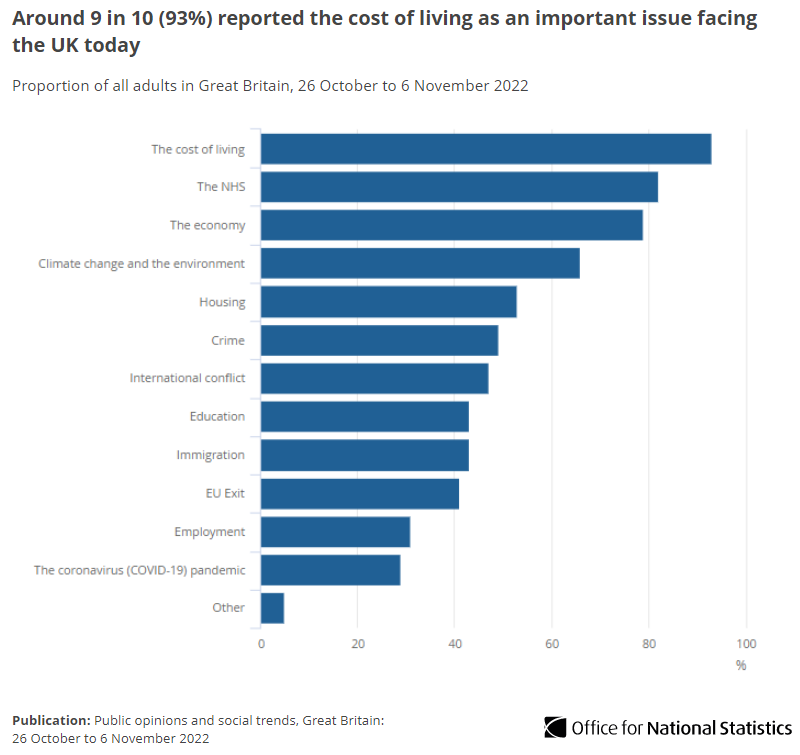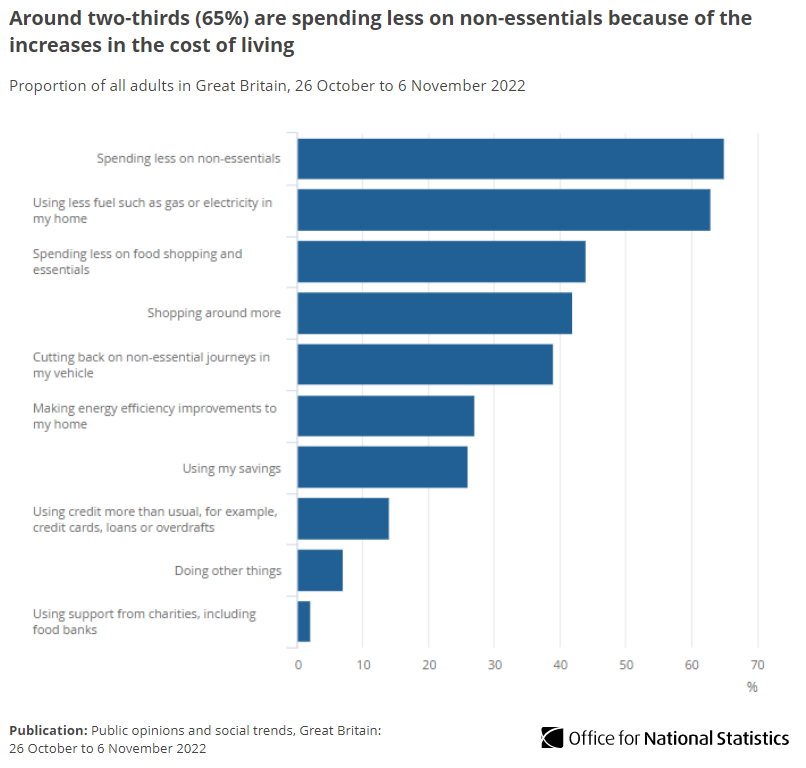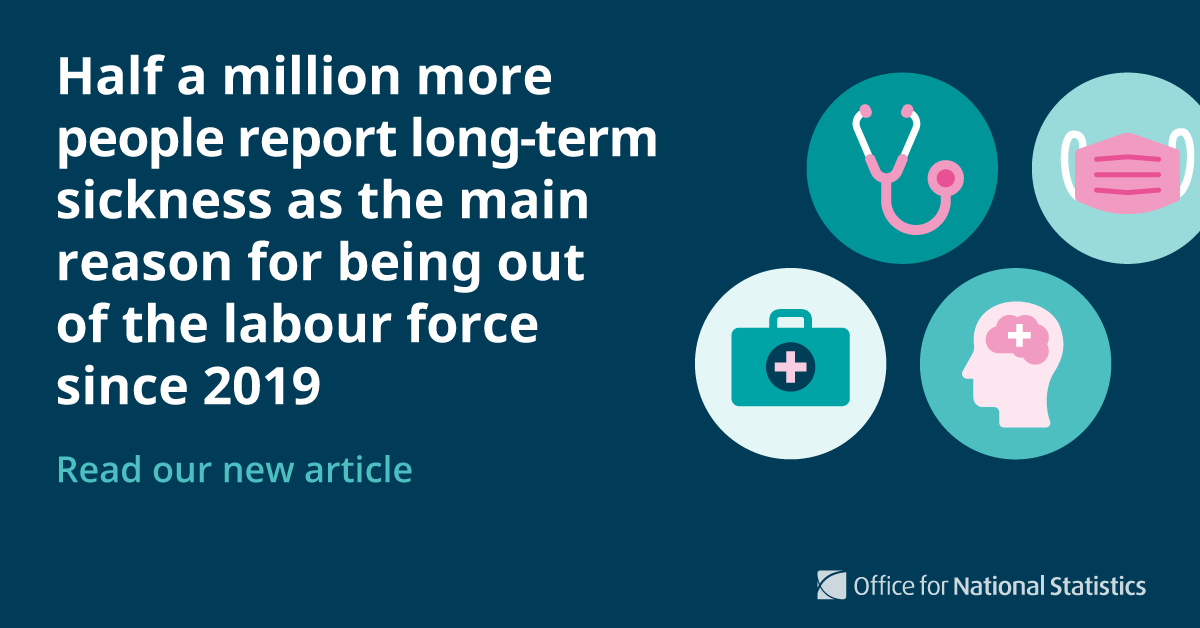
We've published our latest Public opinions and social trends article (26 Oct to 6 Nov 2022) with insights on daily life and the #CostOfLiving
New insights include:
▪️ important issues facing the UK today
▪️ people keeping warm in their home
➡️ ow.ly/n33U50LAPnn
New insights include:
▪️ important issues facing the UK today
▪️ people keeping warm in their home
➡️ ow.ly/n33U50LAPnn

When asked about the important issues facing the UK today 93% of adults said the cost of living was an important issue📈
Other issues reported as important were:
🏥 NHS (82%)
💷 economy (79%)
🌍 environment and climate change (66%)
Other issues reported as important were:
🏥 NHS (82%)
💷 economy (79%)
🌍 environment and climate change (66%)

91% reported their cost of living had increased compared to a year ago, while 77% reported an increase in their cost of living compared to one month ago. 

The most frequent reasons reported by adults for the rise in their cost of living over the past month were an increase in:
🛒the price of food shopping (94%)
⚡their gas or electricity bills (76%)
⛽ the price of fuel (53%)
🛒the price of food shopping (94%)
⚡their gas or electricity bills (76%)
⛽ the price of fuel (53%)

56% adults reported being very or somewhat worried about keeping warm in their home this winter ❄️🏠
Women were more likely than men to say this (61% compared with 50% respectively).
Women were more likely than men to say this (61% compared with 50% respectively).

37% of adults currently paying rent or mortgage payments reported finding it very or somewhat difficult to afford these payments.
This appears to be gradually increasing in recent months having been 27% in the period 14 to 25 September 2022.
This appears to be gradually increasing in recent months having been 27% in the period 14 to 25 September 2022.

47% of adults reported they don’t think they will be able to save money in the next 12 months 👛
This compares with 34% a year ago (3 to 14 November 2021).
➡️ ow.ly/n33U50LAPnn
This compares with 34% a year ago (3 to 14 November 2021).
➡️ ow.ly/n33U50LAPnn
• • •
Missing some Tweet in this thread? You can try to
force a refresh
















